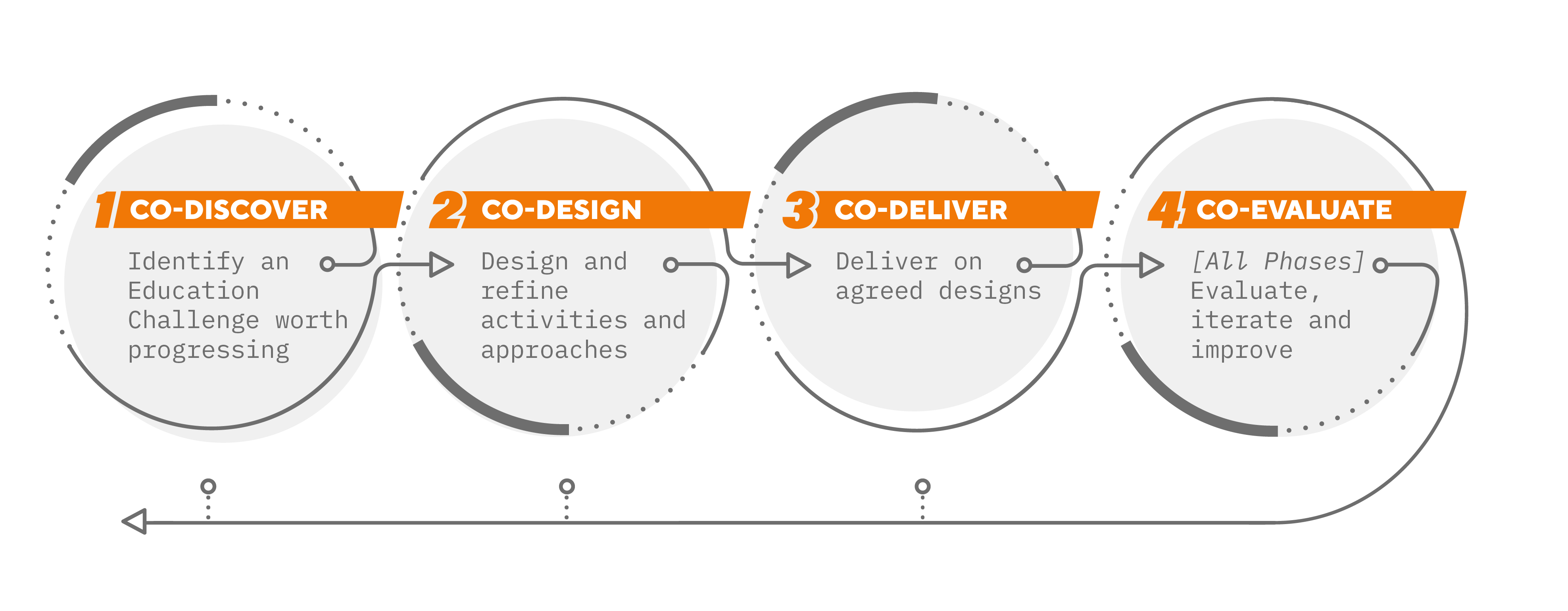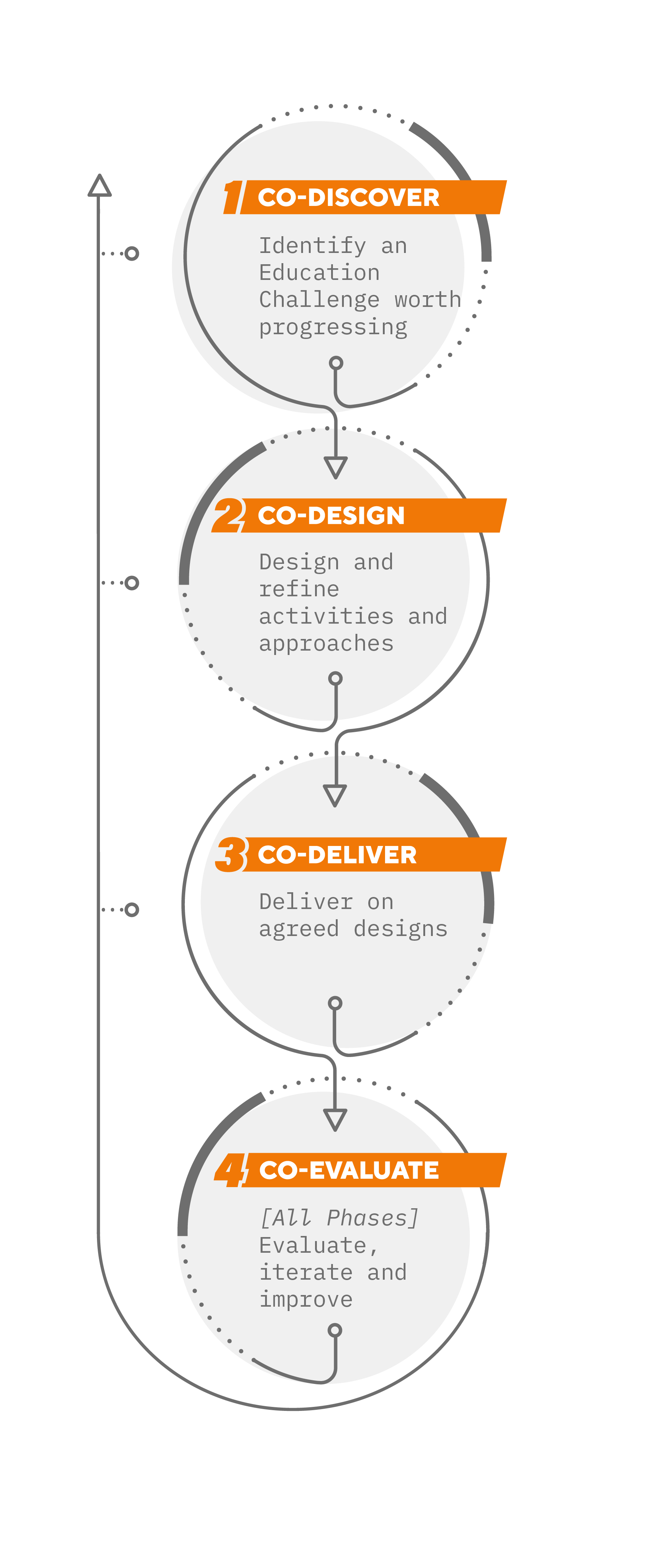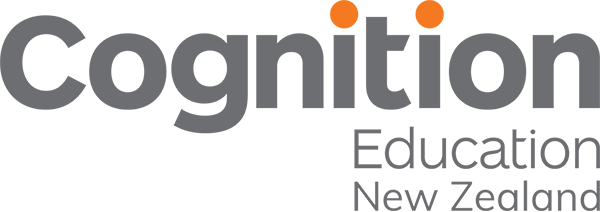Our approach
The Collaborative Impact Approach is our in-house methodology for supporting clients to achieve their most ambitious goals. It is stepwise framework to get from priority goals, to high-probability actions, to deep impact.
The Collaborative Impact Approach is derived from our 30-year track-record across 30+ countries and from our analysis of 50+ improvement and implementation frameworks.
Members of our education team have also published books and research papers that have informed the framework including: The Lean Education Manifesto; Building to Impact; Getting to GOLD; and Room for Impact (forthcoming).
This work has been undertaken in partnership with some of the world’s leading education researchers, including Prof. John Hattie (Melbourne University) and Prof. Dylan Wiliam (University College London).
Read more about our methodology below.
Our approach
The Collaborative Impact Approach is our in-house methodology for supporting clients to achieve their most ambitious goals. It is a stepwise framework to get from priority goals, to high-probability actions, to deep impact.
The Cognition Way is derived from our 30-year track-record across 30+ countries and from our analysis of 50+ improvement and implementation frameworks.
Members of our education team have also published books and research papers that have informed the framework including: The Lean Education Manifesto; Building to Impact; Getting to GOLD; and Room for Impact (forthcoming).
This work has been undertaken in partnership with some of the world’s leading education researchers, including Prof. John Hattie (Melbourne University) and Prof. Dylan Wiliam (University College London).
Read more about our methodology below.
The Collaborative Impact Approach

Co-Discover
Organisations are often inundated with reform agendas that fizzle out because of initiative fatigue. Our Co-Discovery process is designed to help stakeholders identify the smallest number of mission-critical priorities to focus ALL their efforts on. By vectoring in on agendas that everyone gets behind – initiatives are more likely to stay the course. The Discovery phase also includes what we call causal driver mapping. To improve the future, we need to understand what causes the present.
Co-Design
The Co-Design phase is about identifying every possible way that stakeholders can bring their most pressing goals to life. It involves assessing each potential approach – looking at the global research on effectiveness, the cost and the complexity implementation, fit with local context and probability of impact. At the end of the Co-Design phase – stakeholders have one or more fully-designed initiatives ready to implement.
Co-Deliver
The Co-Delivery phase is about bringing the designs to life. Our teams take a hands-on approach with governments, schools and even business/community stakeholders to ensure high quality delivery. We use project management approaches that are appropriate to the scale, complexity, and risk – including PRINCE2 and Agile methodologies.
Co-Evaluate
Evaluation isn’t something we tack on at the end as an afterthought – it’s embedded in all phases of the Cognition Way. We validate our discovery insights; work with stakeholders to build and test multiple programme logic models; collaboratively set short, medium and long-term improvement targets; and during delivery, we regularly measure to know our collective impact. Our engagement teams then work with stakeholders to interpret this data to identify how we can collectively iterate the design to significantly enhance the impact. And we repeat this process over and over.
The Collaborative Impact Approach

Co-Discover
Organisations are often inundated with reform agendas that fizzle out because of initiative fatigue. Our Co-Discovery process is designed to help stakeholders identify the smallest number of mission-critical priorities to focus ALL their efforts on. By vectoring in on agendas that everyone gets behind – initiatives are more likely to stay the course. The Discovery phase also includes what we call causal driver mapping. To improve the future, we need to understand what causes the present.
Co-Design
The Co-Design phase is about identifying every possible way that stakeholders can bring their most pressing goals to life. It involves assessing each potential approach – looking at the global research on effectiveness, the cost and the complexity implementation, fit with local context and probability of impact. At the end of the Co-Design phase – stakeholders have one or more fully-designed initiatives ready to implement.
Co-Deliver
The Co-Delivery phase is about bringing the designs to life. Our teams take a hands-on approach with governments, schools and even business/community stakeholders to ensure high quality delivery. We use project management approaches that are appropriate to the scale, complexity, and risk – including PRINCE2 and Agile methodologies.
Co-Evaluate
Evaluation isn’t something we tack on at the end as an afterthought – it’s embedded in all phases of the Cognition Way. We validate our discovery insights; work with stakeholders to build and test multiple programme logic models; collaboratively set short, medium and long-term improvement targets; and during delivery, we regularly measure to know our collective impact. Our engagement teams then work with stakeholders to interpret this data to identify how we can collectively iterate the design to significantly enhance the impact. And we repeat this process over and over.
Leveraging the Global What Works Best Data
Cognition Learning Group maintains an in-house database of systematic reviews and meta-analysis on high-impact learning interventions. This brings together the findings of more than 100,000 studies, involving more than 300 million study participants. We leverage this data to mine and test the highest probability program designs – ensuring all our work is informed by the latest global research.
Members of our education team are also involved in growing this global wealth – including building the largest global database on high-impact approaches for developing countries.
Contact
Level 8, 139 Quay Street, Auckland 1010
New Zealand

